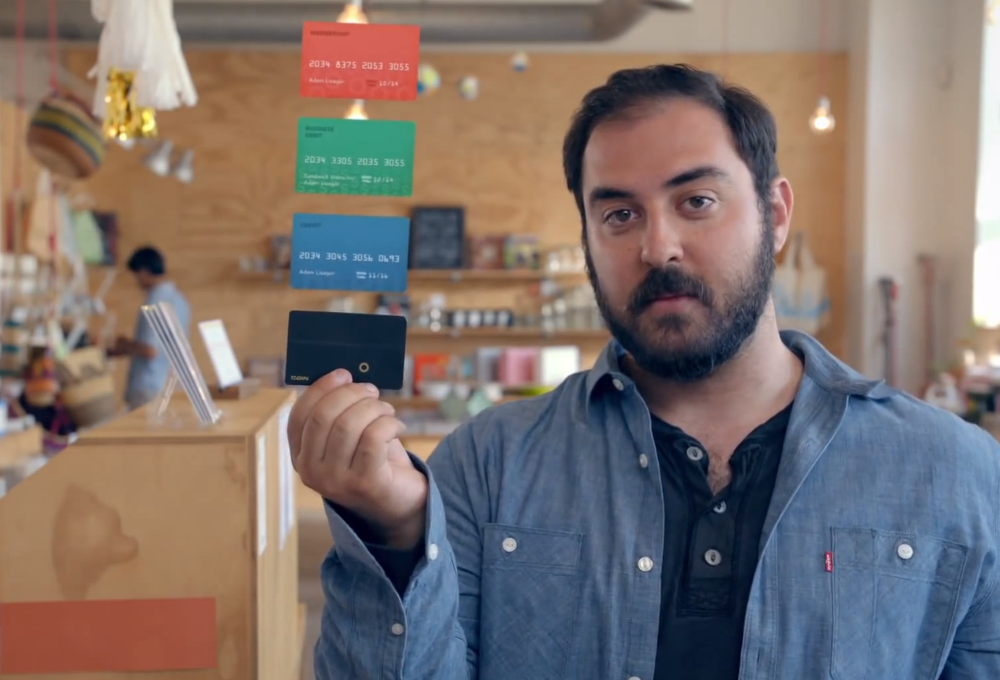RE: Colin Lam’s blog post on Coin
Coin, a black credit card with a digital screen on it, designed by recent San Francisco start up, addresses the problems with bulky wallets. Coin is a smart swipe-able card that stores all your existing card information on your phone. When you want to pay, you will simply pick the card you want to pay with on Coin and swipe. Personally, I have dealt with many frustrating times where I had to fit two or three cards in my wallet slots. I agree with Colin Lam on the fact that the innovative Coin card has a great prospective future ahead of them. However, Coin would have to overcome the few issues and concerns that I am sure many consumers pose. The primarily issue with Coin is its security level. Although, Coin will disable itself if lost, there is still danger in whether hackers will be able to hack your lost card and acquire your credit card information. In addition, I am curious in how Coin is going to deal with the short-life battery issue with our phones.

Read the article here: http://www.forbes.com/sites/natalierobehmed/2013/11/14/coin-tries-to-make-credit-cards-history/



 Snapchat’s recent turn down of Facebook’s $3 billion takeover offer has attracted many critics. Snapchat is an app that allows users to send picture or video messages that disappear once they are viewed. Currently in the market, social media is defined as shared and public interaction. Snapchat’s value proposition, allows their users to send pictures to their friends in an easy and fun fashion. Their services serve as a remedy to the mainstream services that capture life moments that can be liked and commented on, in other words, it offers privacy. Despite this, in my opinion, I thought Snapchat should have accepted the offer. Although, the young company demonstrates great potential for growth, their value proposition might not prevail in the long run. Personally, my experience with the app was initially indulging. However, over time it became repetitive. Snapchat might face future challenges in their value proposition, because it is hard to predict a market that is based on a fad. If Snapchat wants to retain their company value in the long run, they have to review their strategies and value proposition. So is Snapchat’s decision for better or for worse?
Snapchat’s recent turn down of Facebook’s $3 billion takeover offer has attracted many critics. Snapchat is an app that allows users to send picture or video messages that disappear once they are viewed. Currently in the market, social media is defined as shared and public interaction. Snapchat’s value proposition, allows their users to send pictures to their friends in an easy and fun fashion. Their services serve as a remedy to the mainstream services that capture life moments that can be liked and commented on, in other words, it offers privacy. Despite this, in my opinion, I thought Snapchat should have accepted the offer. Although, the young company demonstrates great potential for growth, their value proposition might not prevail in the long run. Personally, my experience with the app was initially indulging. However, over time it became repetitive. Snapchat might face future challenges in their value proposition, because it is hard to predict a market that is based on a fad. If Snapchat wants to retain their company value in the long run, they have to review their strategies and value proposition. So is Snapchat’s decision for better or for worse? goes the saying “one man’s trash is another man’s treasure,” Jacqueline proposes that “we make our trash our treasure.” Tying in Jacqueline’s sustainability idea and the class on CSR and sustainability, I observed a connection between them. If businesses can reexamine their value proposition and redefine their products in a more ecofriendly term, maybe there is some hope in reducing the speed our waste is accumulating around the world.
goes the saying “one man’s trash is another man’s treasure,” Jacqueline proposes that “we make our trash our treasure.” Tying in Jacqueline’s sustainability idea and the class on CSR and sustainability, I observed a connection between them. If businesses can reexamine their value proposition and redefine their products in a more ecofriendly term, maybe there is some hope in reducing the speed our waste is accumulating around the world.